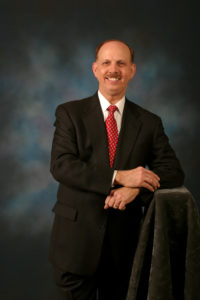 By George F. Indest III, J.D., M.P.A., LL.M., Board Certified by The Florida Bar in Health Law
By George F. Indest III, J.D., M.P.A., LL.M., Board Certified by The Florida Bar in Health Law
Almost all life insurance policies, including term policies, pay a “double indemnity,” that is, double the limits of coverage if a death occurs from “accidental causes” as opposed to “natural causes.” A question arises, given the COVID-19 pandemic, of whether a death caused by the novel corona versus would be considered a natural death or an accidental death. Fortunately, there is some guidance on this issue.
One reason it is important to distinguish between “accidental death” and “natural death” is that:
There is no pandemic exclusion for life insurance. General life insurance covers pandemics, assuming you were truthful about your travel plans and exposure to illness during the application process. . . . . An accidental death & dismemberment policy is more limited and covers deaths only when they’re accidental. It generally doesn’t [usually] cover deaths caused by illness and disease.
Nat’l Ass’n of Ins. Comm’rs, COVID-19 & Ins. (2020), https://content.naic.org/sites/default/files/inline-files/Insurance%20Brief%20-%20Covid-19%20and%20Insurance.pdf. (Emphasis added).
Definition of “Accidental Death”
According to Black’s Law Dictionary, an “accidental death” is defined as: “A death that results from an unusual event, one that was not voluntary, intended, expected, or foreseeable.” Accidental Death, Black’s Law Dictionary (4th pocket ed. 2011). Likewise, Ballentine’s Law Dictionary states than an “accidental death” is:
One that occurs unforeseen, undesigned, and unexpected. 29 Am J Rev ed Ins § 1166. One which occurs by accident, that is, was not designed or anticipated, albeit it may occur in consequence of a voluntary act.
Accidental Death, Ballentine’s Law Dictionary (3rd ed. 1969).
Under the above two definitions, definitions that are usually considered to come from the common law, death from the COVID-19 virus would be considered to be an “accidental death.”
Look to State Insurance Laws for Definitions.
One should also immediately look at the state’s insurance statutes to see if their state’s law defines “accidental death” in terms of insurance coverage. As an example, Florida law provides such definitions in Chapter 627 of Florida Statues which deals with insurance contracts.
Section 627.429(5)(c), Florida Statutes, is of particular note. Regarding death from HIV, for example, it states:
Except for preexisting conditions specifically applying to sickness or medical condition of the insured, benefits under a life insurance policy shall not be denied or limited based on the fact that the insured’s death was caused, directly or indirectly, by exposure to the HIV infection or a specific sickness or medical condition derived from such infection. This paragraph does not prohibit the issuance of accidental death only or specified disease policies.
Section 627.429(5)(c), Florida Statutes (emphasis added).
This is significant because the Human Immunodeficiency Virus (HIV) is a very slow-acting disease that harms one’s immune system by destroying the white blood cells that fight infection. Death may not occur for years, even decades from an infection. Whereas, COVID-19 is a fast-acting respiratory virus. If death from HIV could be considered an “accidental death,” than death from COVID-19 certainly could be classified as “accidental death,” as well.
Legal Arguments for “Accidental Death”
If you have a death in your family and there is life insurance coverage on that person, you should not accept the insurance company’s determination that the death is from “natural causes” as opposed to “accidental death.” Challenge this decision, in court, if necessary.
A death caused by the COVID-19 virus is clearly “from an unusual event.” I doubt that anyone would even contest this issue. It is also clearly “one that was not voluntary, intended, [or] expected.” Again, the novel coronavirus pandemic has taken the world by surprise. How can anyone in their right mind argue that it was truly “expected.” “Foreseeable” would be an objective test as to whether this was something “reasonably foreseeable.” It does not appear, from the shock and unreadiness displayed by state and national governments and health officials, that this event was truly reasonably foreseeable.
I did not foresee it, did you? If 99.999% of the populace did not foresee it, how can it be argued that it is reasonably foreseeable? At the very least, this is a jury question and the foregoing should be argued to the jury. If the average reasonable man (the man who is a legal fiction) did not foresee this pandemic and the deaths that result, how can it not be an “accidental death”? It seems that any jury would be hard-pressed to find other than an “accidental death.”
At the Health Law Firm, we provide legal services for all health care providers and professionals. This includes physicians, nurses, dentists, psychologists, psychiatrists, mental health counselors, Durable Medical Equipment suppliers, medical students and interns, hospitals, ambulatory surgical centers, pain management clinics, nursing homes, and any other healthcare provider. It also includes medical students, resident physicians, and fellows, as well as medical student professors and clinical staff. We represent facilities, individuals, groups and institutions in contracts, sales, mergers, and acquisitions. The lawyers of The Health Law Firm are experienced in complex litigation and both formal and informal administrative hearings. We also represent physicians accused of wrongdoing, in patient complaints, and in Department of Health investigations.
To contact The Health Law Firm, please call (407) 331-6620 and visit our website at www.ThehealthLawFirm.com
About the Author: George F. Indest III, J.D., M.P.A., LL.M., is Board Certified by The Florida Bar in Health Law; he is the President and Managing Partner of The Health Law Firm, which has a national practice. Its main office is in Orlando, Florida, area. www.TheHealthLawFirm.com. The Health Law Firm, 1101 Douglas Ave. Suite 1000, Altamonte Springs, FL 32714, Phone: (407) 331-6620.
“The Health Law Firm” is a registered fictitious business name of and a registered service mark of The Health Law Firm, P.A., a Florida professional service corporation, since 1999.
Copyright © 2020 The Health Law Firm. All rights reserved.

